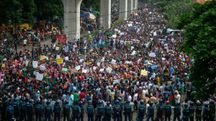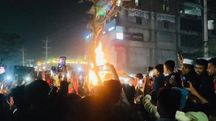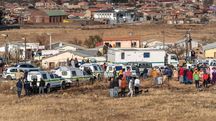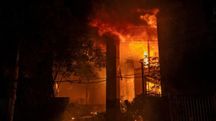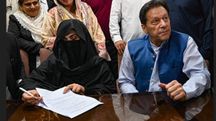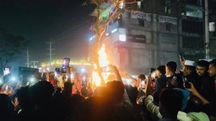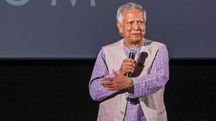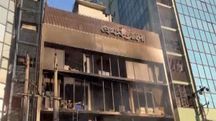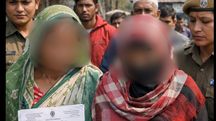Death toll in Bangladesh job quota protests rises to 6, educational institutes closed
Violent protests over government job quotas in Bangladesh have led to six deaths and over 100 injuries. The government has shut down educational institutions and deployed paramilitary troops in major cities.
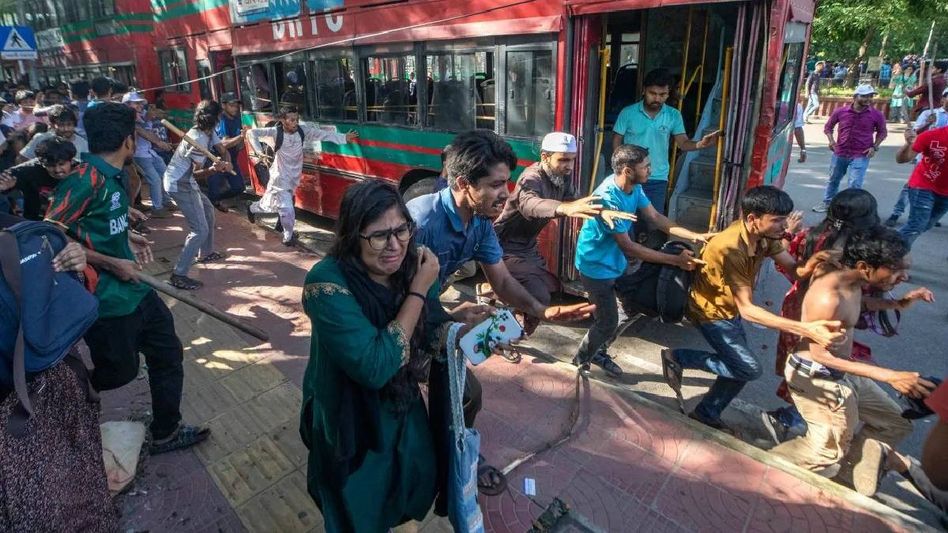 Death toll in Bangladesh job quota protests rises to 6, educational institutes closed (Photo: RifatAhmed/X)
Death toll in Bangladesh job quota protests rises to 6, educational institutes closed (Photo: RifatAhmed/X)Violent protests over job quota in Bangladesh has claimed the lives of at least six people, including three students, while over 100 were injured on July 16. The Bangladesh government ordered closure of schools and colleges.
Chaos erupted in major cities across the country after protesters demanding reforms of the quota system in government jobs clashed with police.
While the initial death toll stood at four, two more deaths were reported by the new Police and major news outlets in Dhaka and the northeastern port city of Chattogram.
According to media reports, three of the deceased were students. Meanwhile, at least 400 other individuals were injured after protests demanding quota system reforms spread across major Bangladesh cities a day.
Amid the violence, the Bangladesh government ordered closure of schools, and colleges until further order amid escalated violence, keeping in mind the safety of students.
On July 17, authorities called out the paramilitary Border Guard Bangladesh (BGB) troops in four major cities after hundreds of policemen in riot gear overnight fanned out in public university campuses across the country.
Dhaka was nearly emptied after unidentified people set on fire two buses after exploding dozens of Molotov cocktails. Meanwhile, several other parts of the city witnessed sporadic clashes causing roadblocks leaving thousands of people stranded in the streets and their workplaces.
It may be mentioned that the clashes had erupted on July 15 as activists of ruling Awami League’s student front confronted the protestors who insist the existing quota system was largely debarring the enrolment of meritorious students in government services and accused the ruling party’s student wing Bangladesh Chhatra League of attacking their “peaceful protests” with backing from police.
The protesters blockaded highways and railway routes in four major cities of central Dhaka, northwestern Rajshahi, southwestern Khulna and the major port city Chattogram following which the police fired tear gas canisters and rubber bullets.
Student groups marched in several key locations, protesting for recruitment in first- and second-class government jobs, demanding seats to be filled based on talent, reforming the existing quota system.
Under the existing system, 30 per cent jobs are reserved for descendants of 1971 Liberation War veterans, 10 per cent for administrative districts, 10 per cent for women, five per cent for ethnic minority groups and one per cent for physically handicapped people.
Every year some 3,000 government jobs open up to nearly 400,000 graduates.
Prime Minister Sheikh Hasina said that “war veterans should receive the highest respect for their sacrifice in 1971 as they joined the war with whatever they had, abandoning the dream of their own life, leaving behind their families, parents and everything”, as per media reports.
She also criticised the protesters saying the war veterans must get the benefit instead of those who opposed the creation of Bangladesh siding with Pakistani troops in 1971, known as “razakars”.
Copyright©2025 Living Media India Limited. For reprint rights: Syndications Today
